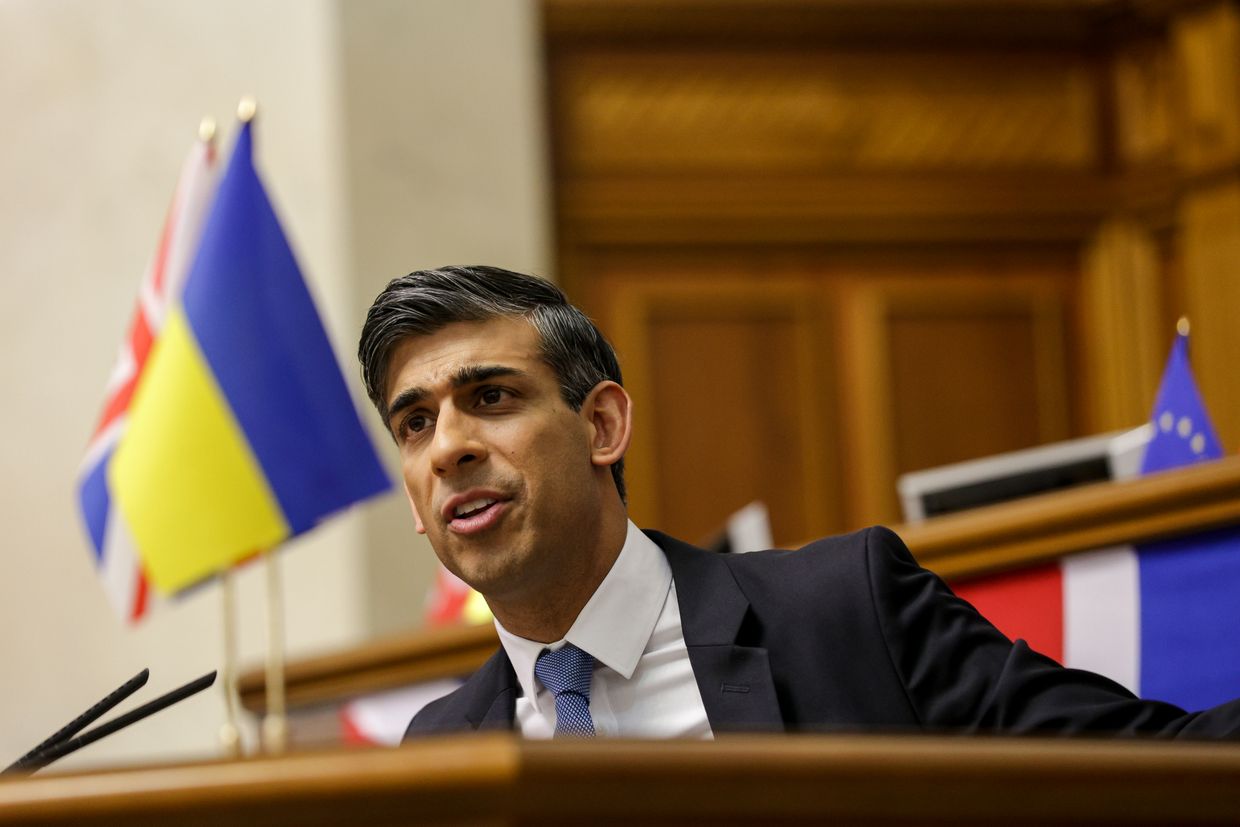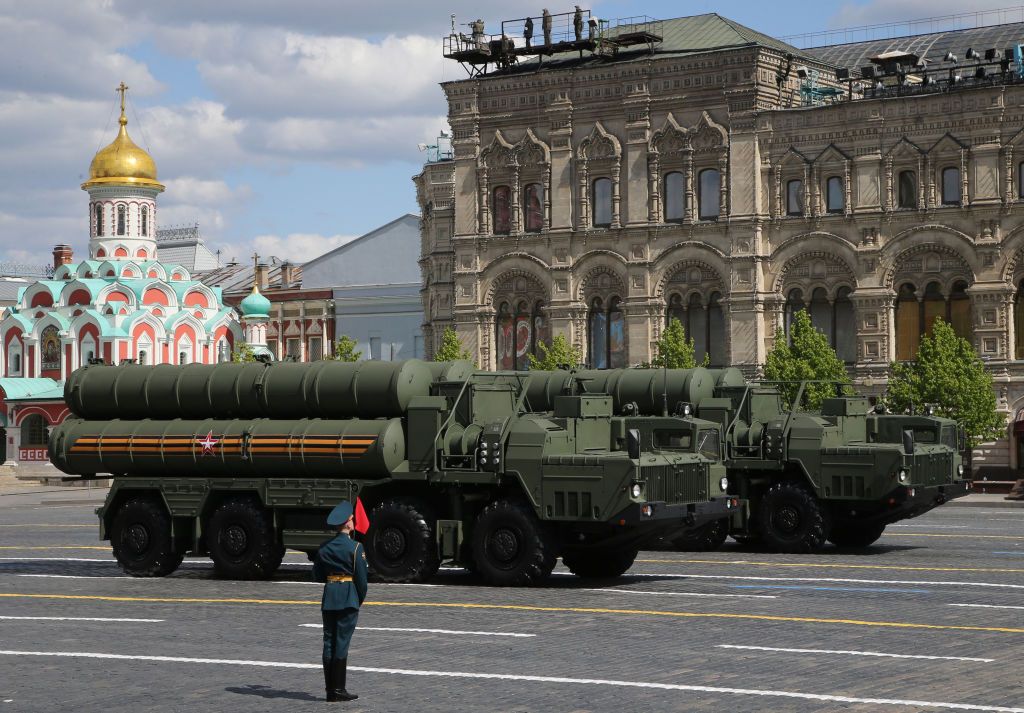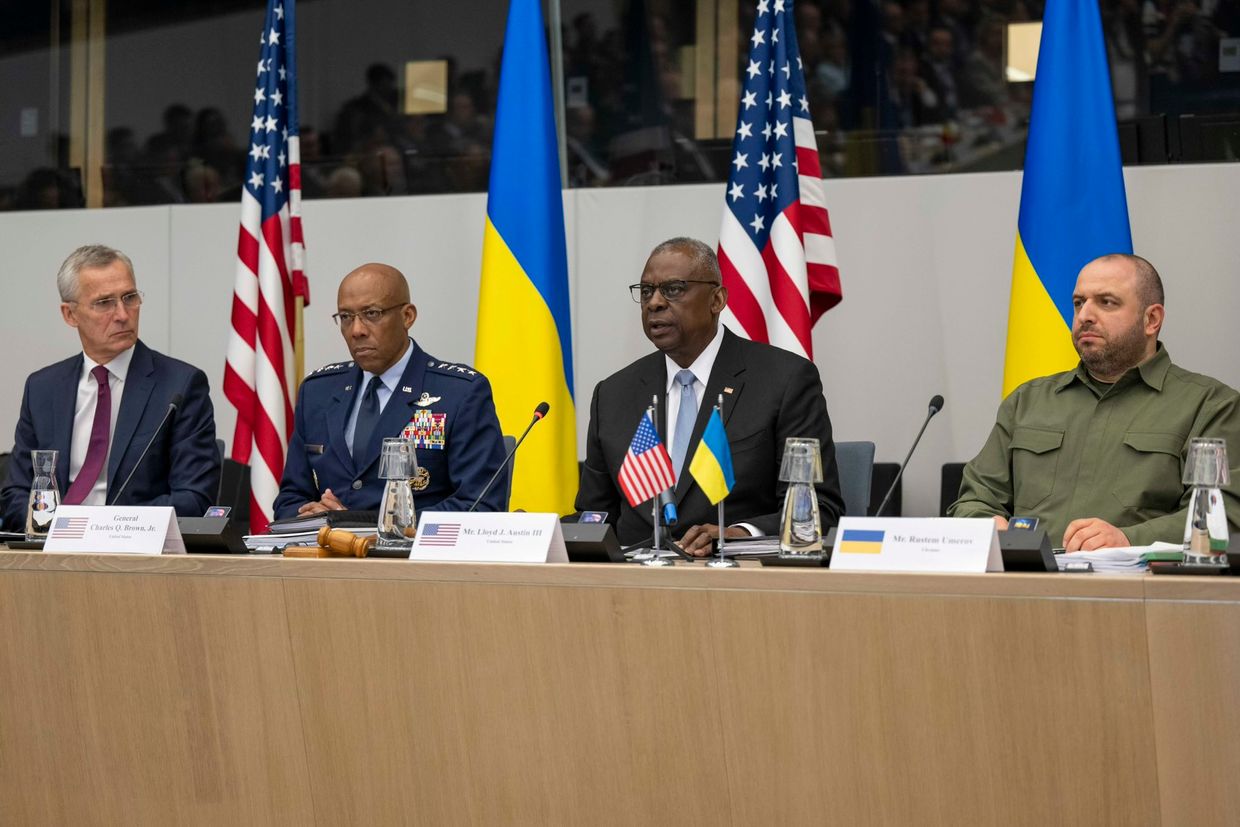Ukraine war latest: Ukraine signs bilateral security agreements with US, Japan

Key developments on June 13:
- Ukraine signs bilateral security agreement with US, Japan
- Ukraine hit Russia's newest communication station for first time, military says
- Media: Slovenia secretly provided Ukraine with military supplies during US aid delay
- Guardian: Russia accused of 'deliberate' starvation tactics in Mariupol in submission to ICC
- Media: Russia suffered 'astronomical' losses on Kharkiv front, NATO source suggests
President Volodymyr Zelensky signed two separate security agreements with the U.S. and Japan on the sidelines of the Group of Seven (G7) summit in Italy on June 13.
The agreements follow the pledge made by the G7 during the NATO summit in Vilnius in July 2023 to commit to Ukraine's long-term defense.
U.S. President Joe Biden said that the agreement with Kyiv lays out a vision for a strong and resilient Ukraine, a just peace, economic recovery, and the restoration of Ukraine's energy infrastructure.
The agreement "clearly states that America supports Ukraine's efforts to win this war," Zelensky said, describing the deal as a "bridge" to Ukraine's future NATO membership.
The text states that the U.S. "commits to support Ukraine in developing a modern, NATO-interoperable force that can credibly deter and, if necessary, defend against future aggression," including developing Ukraine's air and missile defense, cybersecurity, and maritime capabilities.
The U.S. also commits to working toward procurement of squadrons of modern fighter aircraft, "including, but not limited to, F-16s," according to the text.
"It is very important that the agreement addresses the issue of Russia's responsibility," Zelensky added, noting that the text emphasizes that Ukraine should be provided with "fair compensation for damage caused by Russian strikes."
The agreement states that the U.S. "intends to hold Russian sovereign assets in United States jurisdiction immobilized until Russia pays for the damage it has caused to Ukraine."
Additionally, the agreement details commitments from Ukraine on reforms and on end-use monitoring for Western-supplied weapons.
Zelensky described the agreement with Japan as a "unique document with one of the world’s most economically and technologically advanced countries."
Japan will provide Ukraine with $4.5 billion in 2024 and will continue to support Ukraine throughout the next 10 years, according to Zelensky.
The two countries agreed to cooperate on cybersecurity, countering foreign interference, combatting organized crime, and ensuring maritime order, among other spheres.
As well as signing the agreements, Zelensky held meetings with G7 leaders including British Prime Minister Rishi Sunak, Canadian Prime Minister Justin Trudeau, and Italian Prime Minister Giorgia Meloni.
Ukraine hit Russia's newest communication station for first time, military says
Ukraine's Special Operations Forces (SOF) attacked Russia's newest R-416GM digital radio relay communication station for the first time since the beginning of the all-out war, the military reported on June 13.
The R-416GM is a station designed to improve the efficiency of radio relay units in the field. Russia began using it in 2018.
Operators from the third SOF regiment reportedly spotted the station on the front line and hit it with one of their newest weapons. The SOF did not disclose the location of the targeted equipment.
As a result of the attack, communication between the command post and Russia's army units was disrupted, the military said. No further details on the attack or the damage were provided.
The day before, Ukrainian forces reportedly destroyed two radars of S-300 and S-400 air defense systems near the Russian Belbek military airfield and Sevastopol in occupied Crimea.
This appears to be the second attack on Russia's air defenses in Crimea in a week. Ukraine reportedly hit one S-400 anti-aircraft missile unit near Dzhankoi, and two more S-300 anti-aircraft missile units were attacked near occupied Chornomorske and Yevpatoria overnight on June 10.
Media: Slovenia secretly provided Ukraine with military supplies during US aid delay
Slovenia had secretly provided Ukraine with various military equipment when the U.S. aid had been stalled for months, the Slovenian media outlet 24UR reported on June 13.
The supplies were not publicly announced as 24UR said it had learned the information through "unofficial" channels.
After six months of political infighting and delays, the U.S. passed a long-awaited $61 billion aid package in April, with much of it covering military aid.
During the six-month break in funding, Ukraine lost the key front-line city of Avdiivka in February amid a severe ammunition shortage.
While Kyiv was waiting for the approval of the U.S. bill, Slovenia sent 20 armored fighting vehicles armed with a 12.7 mm caliber weapon, six armored fighting vehicles armed with a 3x20 mm caliber weapon, three infantry fighting vehicles, and a shipment of drones to Ukraine, according to the outlet.
The Slovenian government also supplied Ukraine with additional rifles, helmets, and ammunition during that period.
In March, the country joined Czechia's initiative to supply artillery shells for Ukraine. Slovenia was planning to allocate 1 million euros ($1.08 million) to the initiative, Radio Prague International reported, citing Slovenian news agency Sta.
Guardian: Russia accused of 'deliberate' starvation tactics in Mariupol in submission to ICC
Russia used a "deliberate pattern" of starvation tactics during its three-month siege of Mariupol in early 2022, which could amount to a war crime, according to a lawyers' analysis submitted to the International Criminal Court (ICC), the Guardian reported on June 13.
The report, submitted to the ICC by Global Rights Compliance lawyers working jointly with the Ukrainian government, says that Russia and its leaders intended to kill and harm a large number of civilians.
The city came under siege by Russian forces between February and May 2022, leaving thousands dead and reducing Mariupol to rubble. According to authorities' rough estimates, at least 25,000 people could have been killed during the siege of Mariupol. The exact number remains unknown and could be much higher.
Catriona Murdoch, a partner at Global Rights Compliance, said that the purpose of the research was to "see if there was a broader narrative" that the Russian military and its leadership deliberately denied food and other necessary services for life.
Lawyers concluded that there were four phases to the Russian assault in Mariupol, including attacks on civilian infrastructure, cutting out the supply of electricity, heating and water, refusal of humanitarian evacuation, and strikes on critical infrastructure.
"Finally, in phase four, Russia engaged in strategic attacks to destroy or capture any remaining infrastructure," she said
The phased attacks on the city demonstrated that Russia planned to capture Mariupol without mercy toward its civilian population, according to Murdoch.
Given the importance of Mariupol and the centralization of decision-making in Russia, responsibility for the deaths of thousands of civilians lies upon the country's leadership, she said.
"(Russian President) Vladimir Putin is to blame, and so are echelons of the Russian military leadership," Murdoch added.
The ICC issued arrest warrants on March 17, 2023, for Putin and Russian Children's Rights Commissioner Maria Lvova-Belova for the forced deportations of thousands of Ukrainian children to Russia.
The court also issued arrest warrants for two Russian military commanders a year later in March for carrying out strikes on Ukrainian electricity infrastructure during the winter of 2022–2023.
Lieutenant General Sergei Kobylash and Admiral Viktor Sokolov "are each allegedly responsible" for a number of war crimes, including "directing attacks at civilian sites," the ICC said.
Media: Russia suffered 'astronomical' losses on Kharkiv front, NATO source suggests
Russia suffered "astronomical" losses while attempting to advance in Kharkiv Oblast, European Pravda reported on June 13, citing a NATO official who spoke on condition of anonymity during a NATO defense ministers meeting in Brussels.
Russia launched a new offensive on May 10 in northern Kharkiv Oblast in a push that involved as many as 30,000 troops, according to a Ukrainian official.
Russian forces have so far advanced less than 10 kilometers into Ukrainian territory and have not managed to seize control of Vovchansk, a city with a pre-2022 population of around 17,000.
"I would also add that the gains in Kharkiv Oblast seem to have come at a rather high price for Russia," European Pravda cited the NATO official.
"Russia likely suffered losses of almost 1,000 people a day in May, which is quite an astronomical figure," the official reportedly said, referring to the number of fatalities.
President Volodymyr Zelensky said in an interview published on May 25 that Russia's losses during the offensive were eight times higher than those suffered by Ukraine's Armed Forces.
According to Ukrainian figures, Russian losses in Ukraine passed the grim milestone of 500,000 on May 25. The figure could not be independently verified.
















